'Not only for older people': Colon cancer rates rising among 50 and younger
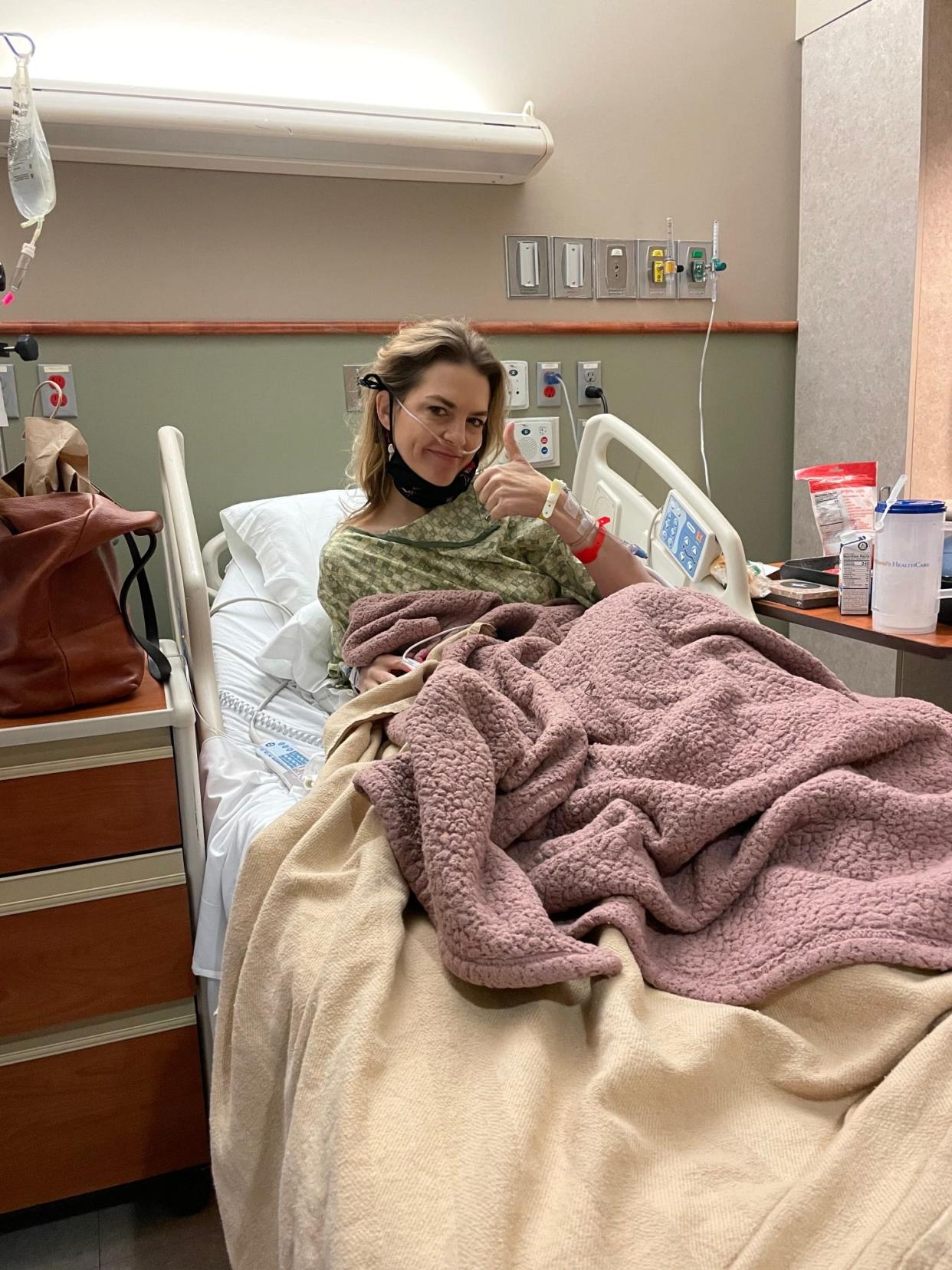
Erica Heidepriem was 37 years old when she ended up in the emergency room with pain that she attributed to her menstrual cycle. She also had been having some diarrhea, but she attributed it to work stress and traveling for work to Mexico.
It was right when the COVID-19 pandemic was beginning, and she was afraid of going to the hospital, but "these symptoms are not going away," she said. Bloodwork revealed nothing, but in June 2020, a colonoscopy, which had been delayed by the pandemic, confirmed she had stage 3 colon cancer.
Emily Robinson was 48 when she saw red blood in her stool in 2013, and after going to different doctors, she was told it was probably internal hemorrhoids. A doctor scheduled a colonoscopy just to make sure. In February 2014, she was diagnosed with stage 3 colon cancer.
Two years ago Bobby Alcantar noticed his stool was black, but he didn't think anything of it. He had some stomach issues, "but with stress and work, I never did think that was something wrong with me."
He was 60 when he was diagnosed with stage 4 colon cancer in September 2020.
Fredella Prather was 57 when she had stomach cramping and blood in her stool that a doctor thought might be irritable bowel syndrome. "The symptoms were persistent, and it wasn't going away," she said.
She was diagnosed with stage 3 colon cancer in March 2021.
These four Central Texans are part of a growing trend of people being diagnosed with colorectal cancer at younger ages.
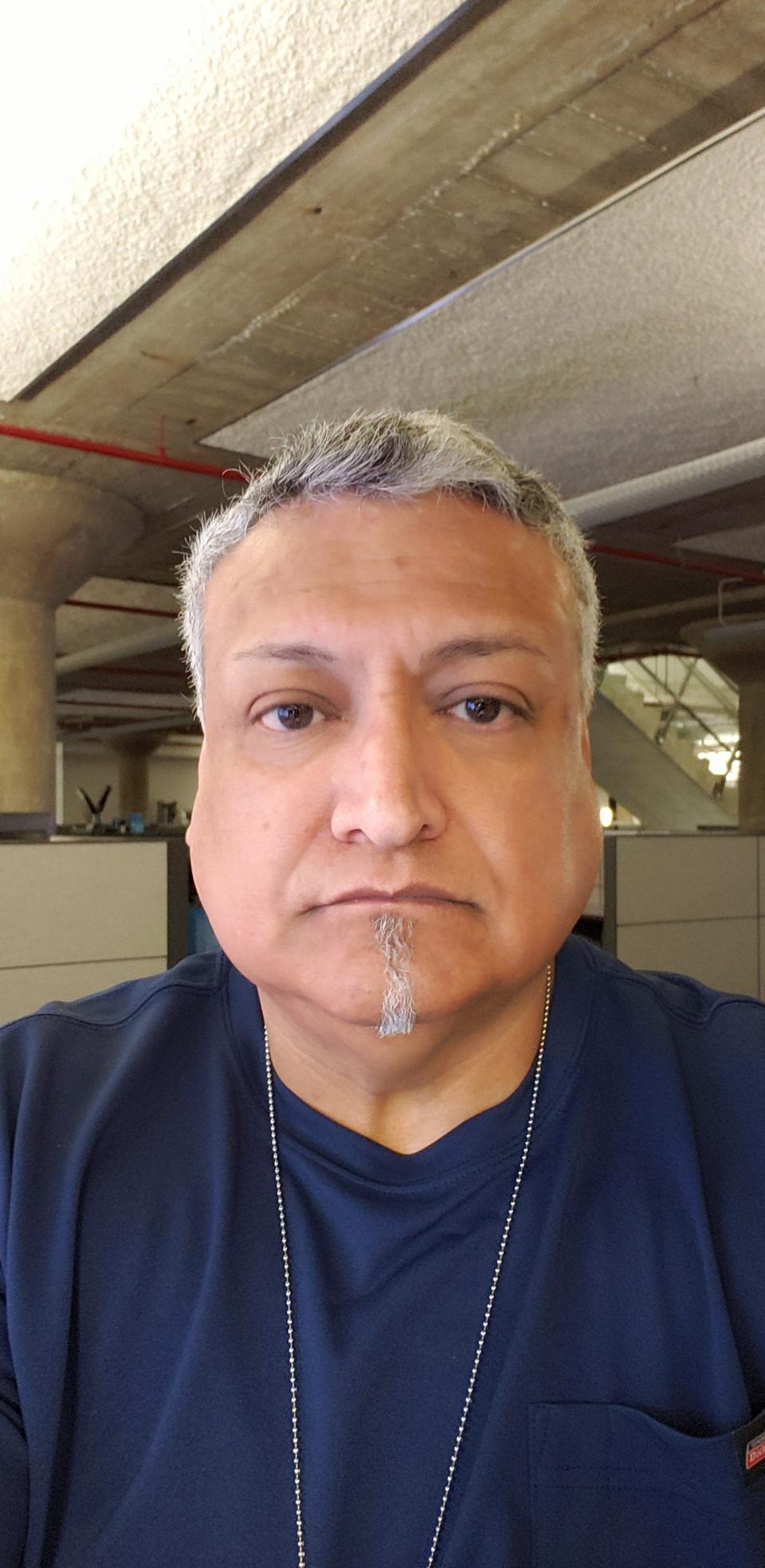
Rethinking who gets colon cancer
Doctors in Austin say they have noticed what colleagues nationwide also have seen: more younger people coming to them with colon or rectal cancer.
"Traditionally it was a 60- to 70-year-old white man who was diagnosed after a second or third colonoscopy," said Dr. Christopher Oxner, a Texas Oncology surgical specialist.
"Now I'm seeing them as young as 28, 30, 35, 40s," he said, even before their first scheduled screening colonoscopy. "It's surprising."
American Cancer Society statistics back this up. While colon and rectal cancer rates have been decreasing about 1% a year from 2013 to 2017, according to the organization, most of that decrease is seen in people 65 and older, about 3.3% per year.
From 2012 to 2016, colorectal cancer in people younger than 50 has gone up 2.2% each year, and it has gone up 1% each year in those 50 to 64, according to the American Cancer Society.
"It's imperative to make young people know it is not something that only affects older people," Heidepriem said.
Colorectal cancer is expected to be the fourth most common new cancer diagnosis this year, behind breast, prostate and lung cancer, but it's expected to be the No. 2 cause of cancer deaths this year, behind lung cancer, according to the American Cancer Society.
Improving treatments: New robotic tool at St. David's South Austin allows doctors to find lung cancer earlier
'Lots of theories'
So why are rates of colorectal cancer rising among younger people? "That's the million-dollar question," said Dr. Thiru Lakshman, colon and rectal surgeon at St. David’s North Austin Medical Center.
A family history of cancer can be part of it, he said, but some of it could be environmental factors such as pollution; our poor diet with not enough fiber, too much fat and too many processed foods; smoking and alcohol use; our sedentary lifestyle and too much screen time; and too much stress.
"There are lots of theories out there," Lakshman said. "There's not one silver bullet."
Cancer outcomes: 'Dramatic responses': St. David's bringing liver cancer innovations to Austin
Most people do not have symptoms until the cancer has advanced to later stages — 3 and 4.
Early stages are typically diagnosed by preventive screenings such as a colonoscopy.
The point at which a person is diagnosed has a strong link to survival rates. The five-year survival rates are good if the cancer remains localized (early stages), 91% for colon cancer and 90% for rectal cancer. If it's regionalized, the rates go down to 72% and 73%, and if more cancer is found in a distant location (later stages), those rates are 14% and 17%, according to the American Cancer Society.
"It still wins sometimes," Oxner said.
Symptoms include:
Signs of blood in the stool, which can be bright red to black depending on where the cancer is.
Anemia.
Changes in stool consistency or bowel habits.
More narrow stools.
Abdominal pain.
Weight loss.
Bloating.
A lot of these symptoms can be shrugged off as other things, Oxner said.
"We're younger; we think we're invincible," he said. "There are little things we brush off."
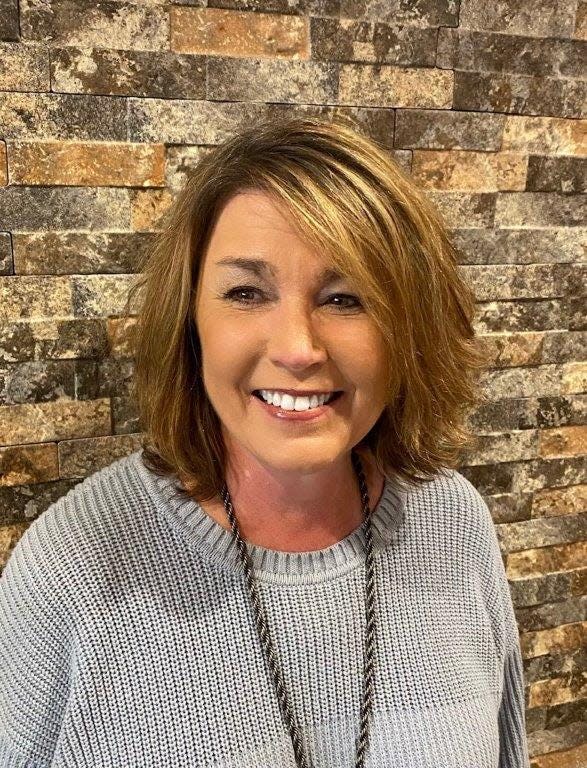
'Colonoscopy saved my life'
Colonoscopies are the gold standard for colon cancer screenings. A day before a colonoscopy, you will be on clear liquids only and must drink some prep medication that causes you to completely empty your bowel.
During the colonoscopy, you will be sedated while the doctor puts a colonoscope up the rectum and takes a look at the whole colon. Air is blown inside to expand the colon to help the doctor see clearly. You might feel bloated afterward.
It can be a one-stop shop for both screening and prevention because if polyps are found, they can be removed right then before becoming cancerous. If cancer is suspected, a biopsy can be taken during the colonoscopy.
"It offers that unique opportunity," said Dr. Andrew Miller, colon and rectal surgeon at St. David’s Round Rock Medical Center, unlike other cancer screenings that have a separate biopsy procedure to diagnose it and no prevention component.
People often don't want to talk about a colonoscopy or any symptoms such as changes in bowel habits. They don't want to do the prep for the colonoscopy or think about the intimate nature of the procedure, he said. "That's such a driver of people not getting screened," he said. "They can be embarrassed. Don't die of embarrassment."
More care offered: After throwing goodbye party, woman with cancer finds hope close to home in Austin
There are other screening methods, but they don't allow for the prevention measures to be taken or immediate diagnosis. In fact, if those screenings show a positive result, the next step is a colonoscopy.
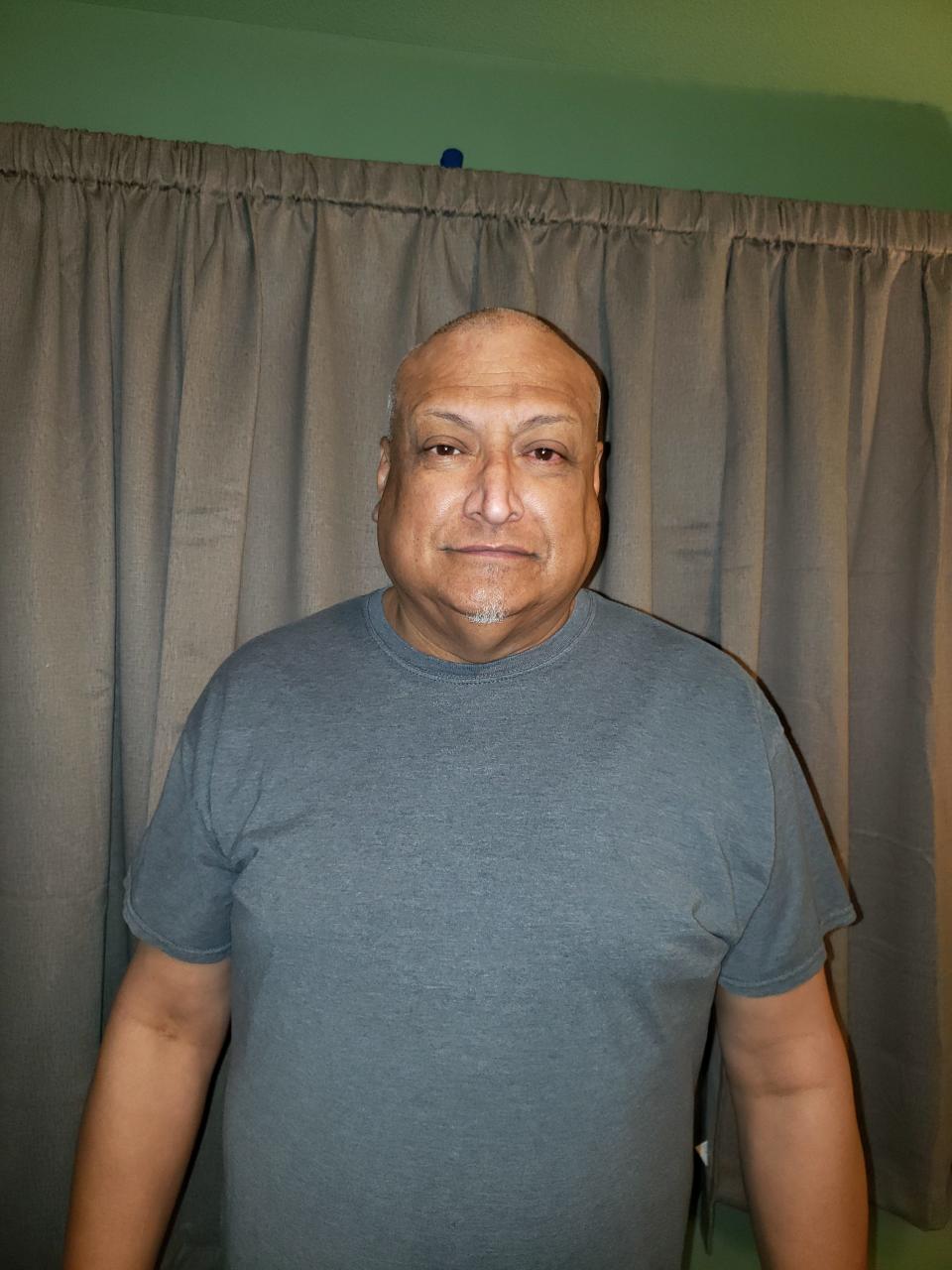
The colonoscopy that revealed Alcantar's cancer was not his first. He had had two previously. At his first one, doctors found polyps — precancerous growths — and removed them. Five years later, he repeated the colonoscopy, and doctors didn't find any polyps or cancer.
In March 2021, it was time for his third colonoscopy.
"I'm the guy who does everything right," he said. "It just goes to show, you can be fit and you can follow the doctor's orders, and you still might get cancer. ... If I had not gone at my appointment time, it might have been too late for me. Colonoscopy saved my life. It's a small price to pay. You want to be healthy."
Prather had postponed getting her first colonoscopy, she said.
"I'm kind of sassy, and I wasn't going to do it. I didn't want to be violated. ... People talk about the prep, and that prep is so disgusting," she said. "In my opinion, it's an unpleasant conversation to have, but the side effects of chemo and radiation are much more unpleasant."
Now she encourages everyone, even strangers she encounters while shopping, to get a colonoscopy. "It's life and death," she said. "If you find it early, you can survive it."
Robinson has six brothers and sisters and has gotten all of them to get colonoscopies. One had polyps that were removed.
"I'm glad that I'm able to tell people about getting screened," she said.
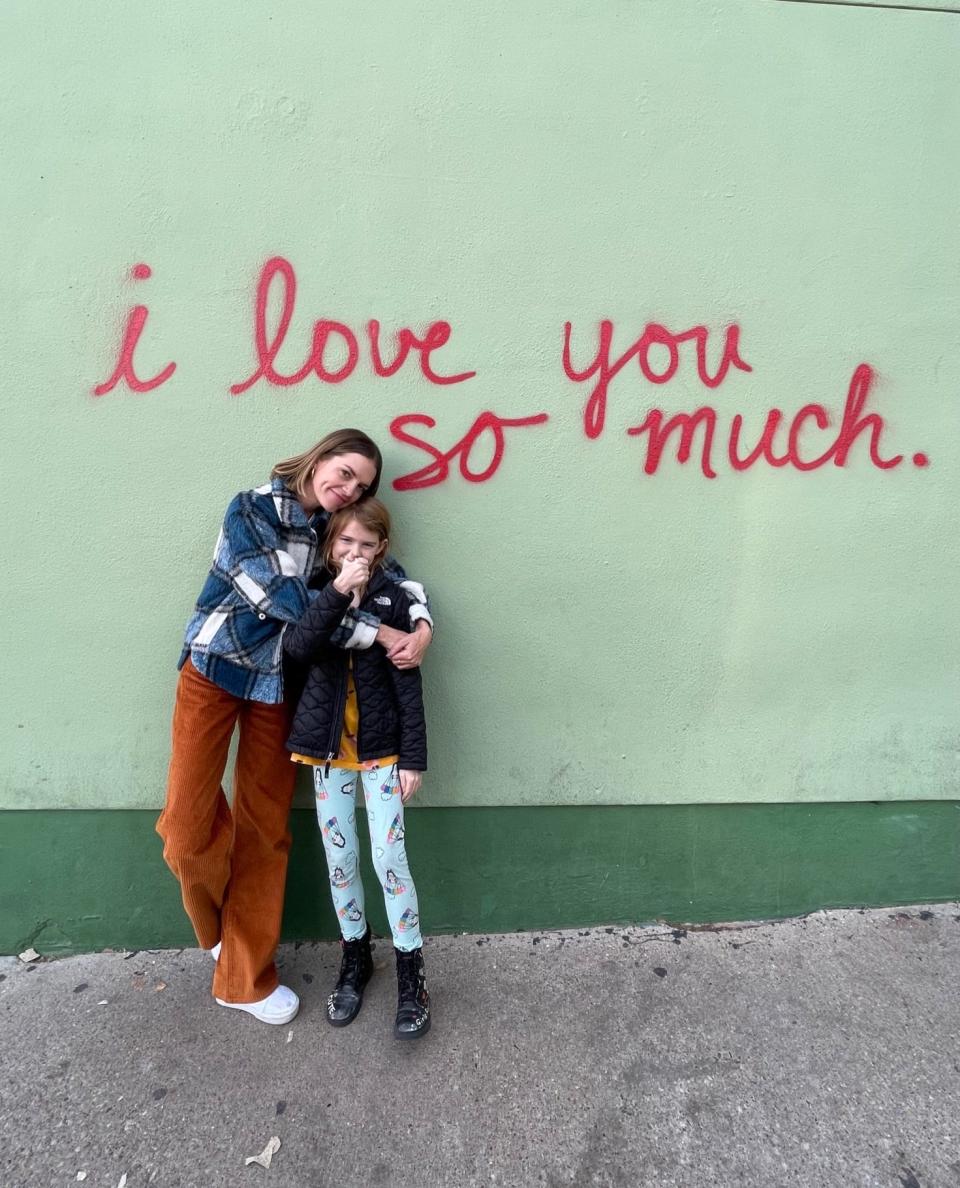
Heidepriem at 37 was too young to have her first screening colonoscopy if she had had normal risk factors. Only after her diagnosis did she learn that her mom had a history of irregular colonoscopies and had had polyps removed. That knowledge would have placed her in a category to get a colonoscopy earlier and more often.
"We need to get over the stigma," she said. "Talk to your family. ... Advocate for yourself to get screened."
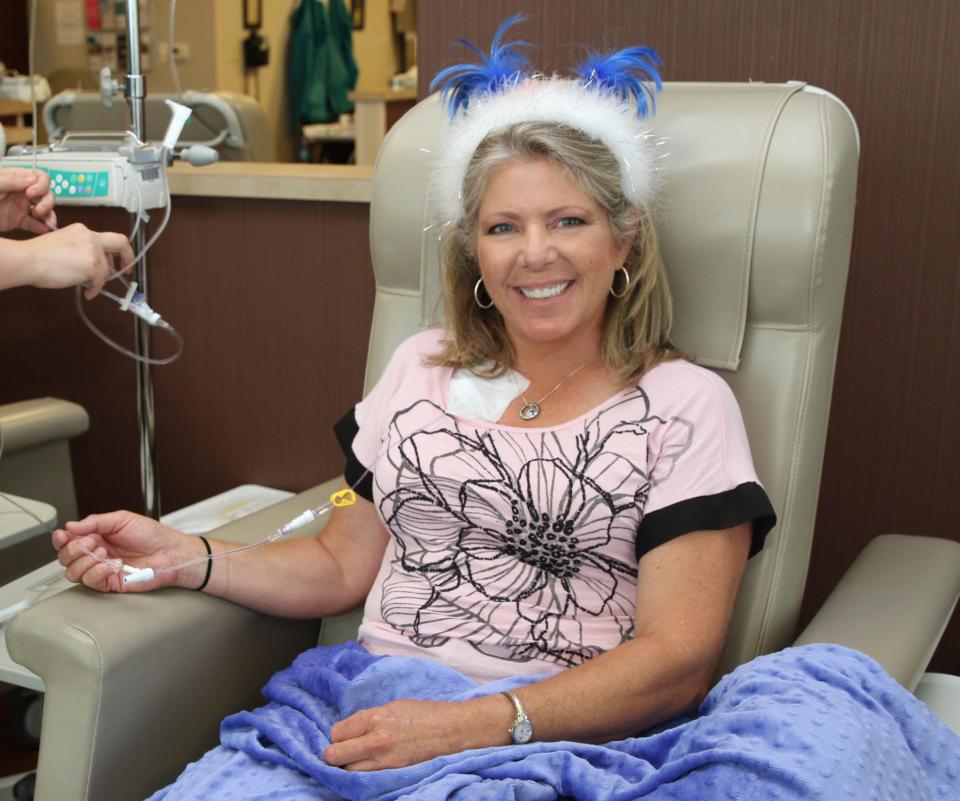
When to get a colonoscopy
The U.S. Preventive Services Task Force and the American College of Gastroenterology issued new guidance last year to lower the recommended age of a first coloscopy because of statistics showing that cases in younger people were on the rise.
The new guidance for first and follow-up colonoscopies is:
Beginning at age 45 and then every 10 years until age 75 for people who have no known risk factors and no family history of colon cancer or polyps. Recommendations vary if a polyp is found during that first colonoscopy, but expect regular colonoscopies at least every five years if one is found.
Beginning at age 40 for people with risk factors such as a family history of cancer or polyps, or a personal diagnosis of inflammatory bowel disease, then at least every five years.
If a family member had colon cancer before age 50, begin 10 years before the age that person was diagnosed (so at age 33 if the person was diagnosed at 43), and then every five years.
Any time if you have symptoms.
Between ages 76 and 85, consult with your doctor about your personal risk factors.
After 85, regular colonoscopy is not recommended.
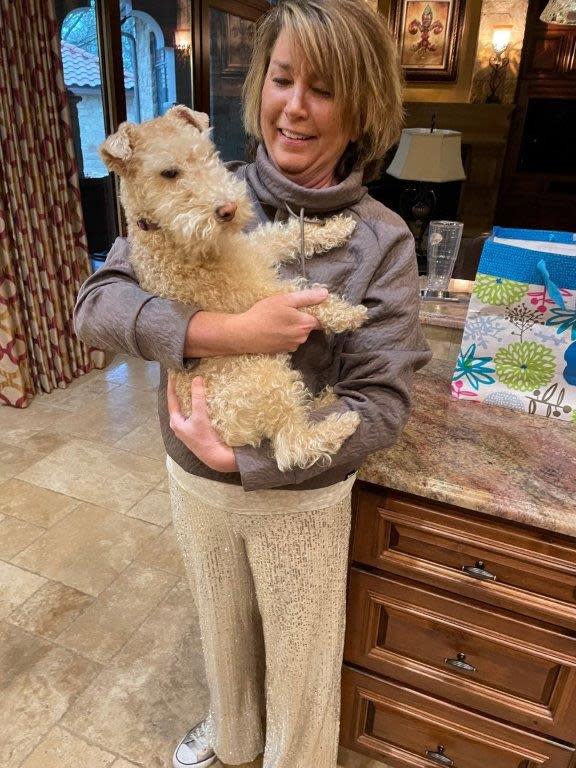
Colonoscopies are covered by insurance but at different rates, depending on whether it's an initial screening with no known risk factors or a screening based on symptoms or known risk factors. Check with your insurer before you schedule to make sure you know whether it is covered at 100% or a percentage of the cost will be covered based on how much of your deductible you've met.
Miller said he only recommends other screening methods — such as do-at-home collection kits — for those who refuse to have a colonoscopy. "Some kind of screening is better than not screening at all," he said.
Those methods are also not for people who have an increased risk because of family history, personal history or other related diseases.
Improving screenings: Dell Medical School, CommUnityCare program double colon cancer screenings with mailed test kits
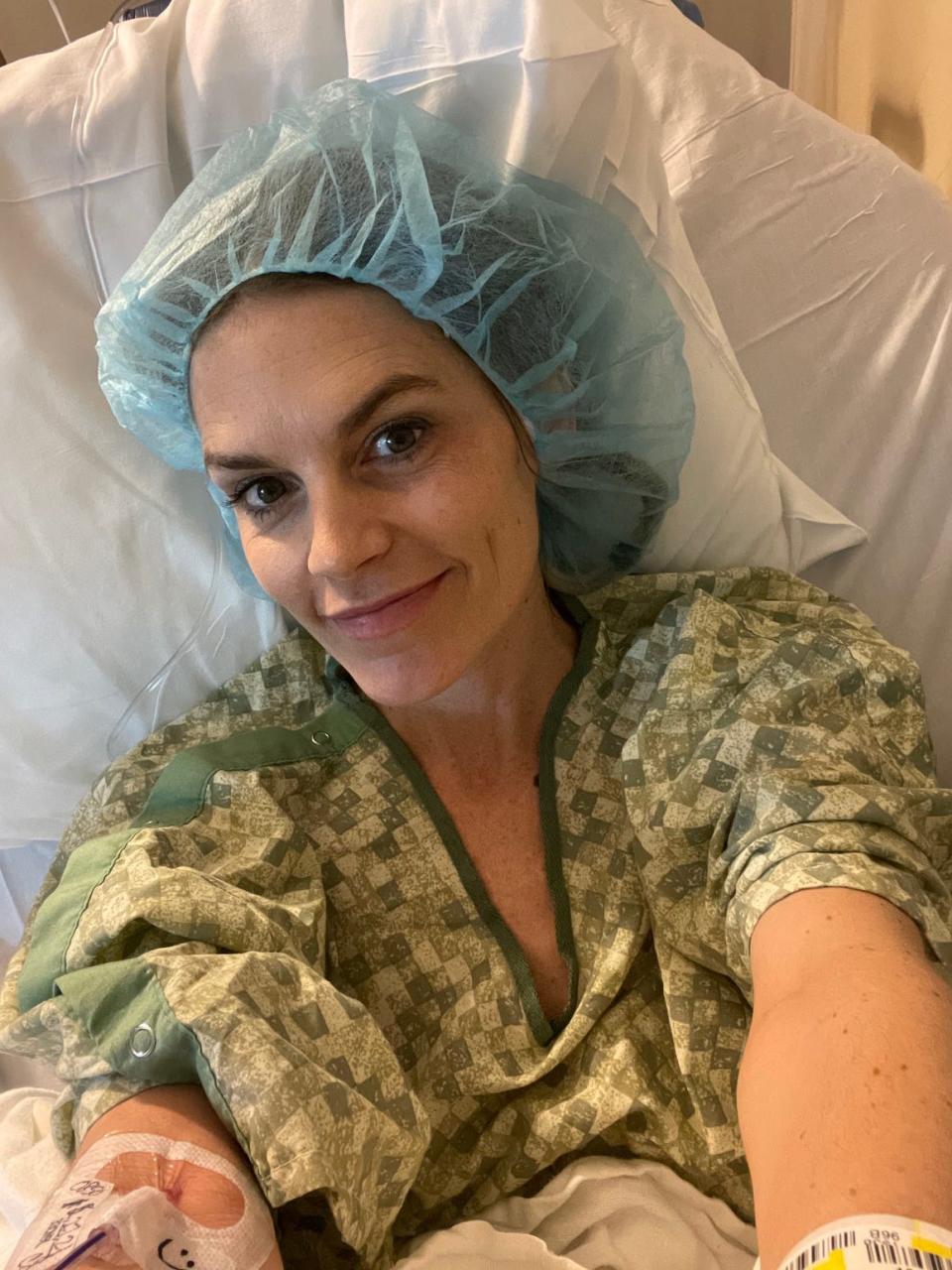
Treating colon cancer
Most colon cancer treatments involve surgically removing the area with the cancer as well as any nearby lymph nodes. Surgery advancements such as robotic or minimally invasive techniques help to make the healing faster.
Sometimes doctors have to do a temporary ostomy bag while the colon heals after surgery. Sometimes it takes a while for the bowels to return to normal.
Chemotherapy and/or radiation or immunotherapy either follows surgery or comes before it depending on the cancer stage, the tumor markers and where it is located.
Miller said advances in treatments have made the medications more effective and more toleratable, which helps people get through all of the treatment.
Some of the treatments can come with side effects such as neuropathy of the hands or feet, or nerve pain and sensitivity to cold, but those often go away.
After treatments patients receive scans every couple of months, then every year for at least five years to make sure no new cancer is found.
"I'm at eight years," Robinson said. "Every year is better."
Getting your colonoscopy is so important, Prather said. "The outcome isn't always like mine. People dying from colon cancer is so unnecessary."
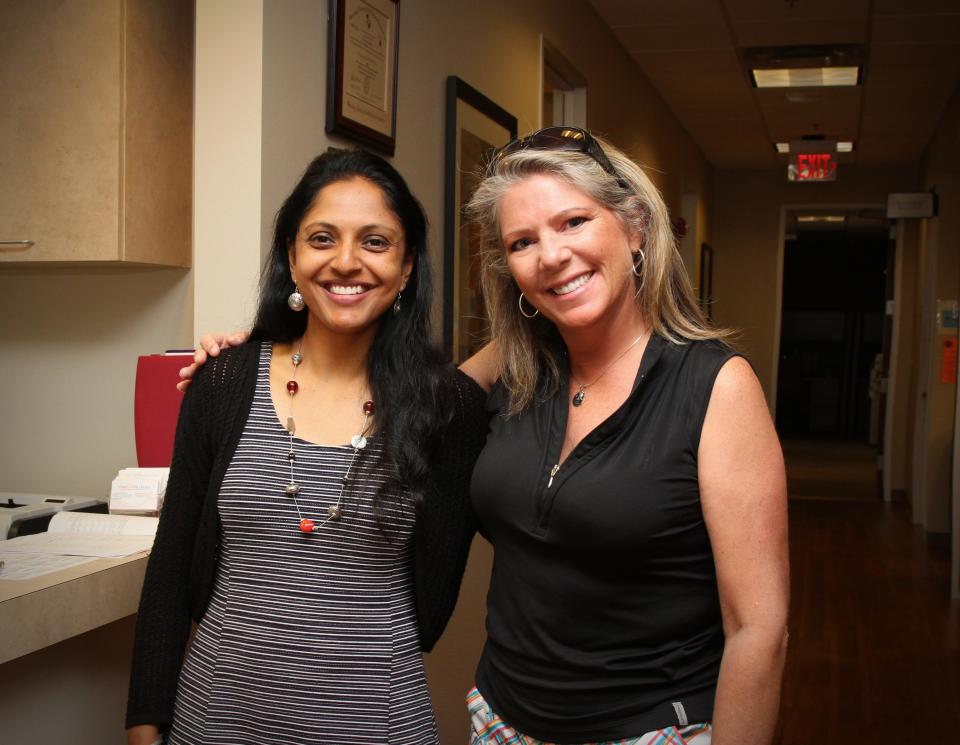
This article originally appeared on Austin American-Statesman: Colon cancer rates rising among 50 and younger, Austin doctors say

